Mary Giroga’s story: providing childcare and boosting women’s economic justice
Social enterprise, Kidogo, supported Mary Giroga to run a childcare centre for low income households.

Women-owned businesses are key drivers of the economy. But without access to affordable, high-quality childcare, many women struggle to balance business and family. This holds them back from achieving their economic objectives.
Social enterprise, Kidogo, provides affordable, good quality childcare for low income households in Kenya. It also trains and supports women as “mamapreneurs” who run their own childcare centres. Here, “mamapreneur”, Mary Giroga, shares her experience running one of these childcare centres.
“We were facing some challenges in my home because I didn’t have work. I was looking for something to do that I could be passionate about. My passion is working with children.
I started my daycare because parents in my area were suffering when they would go to work. There was no daycare nearby, so they were traveling far or bringing their children to work, which is not good.
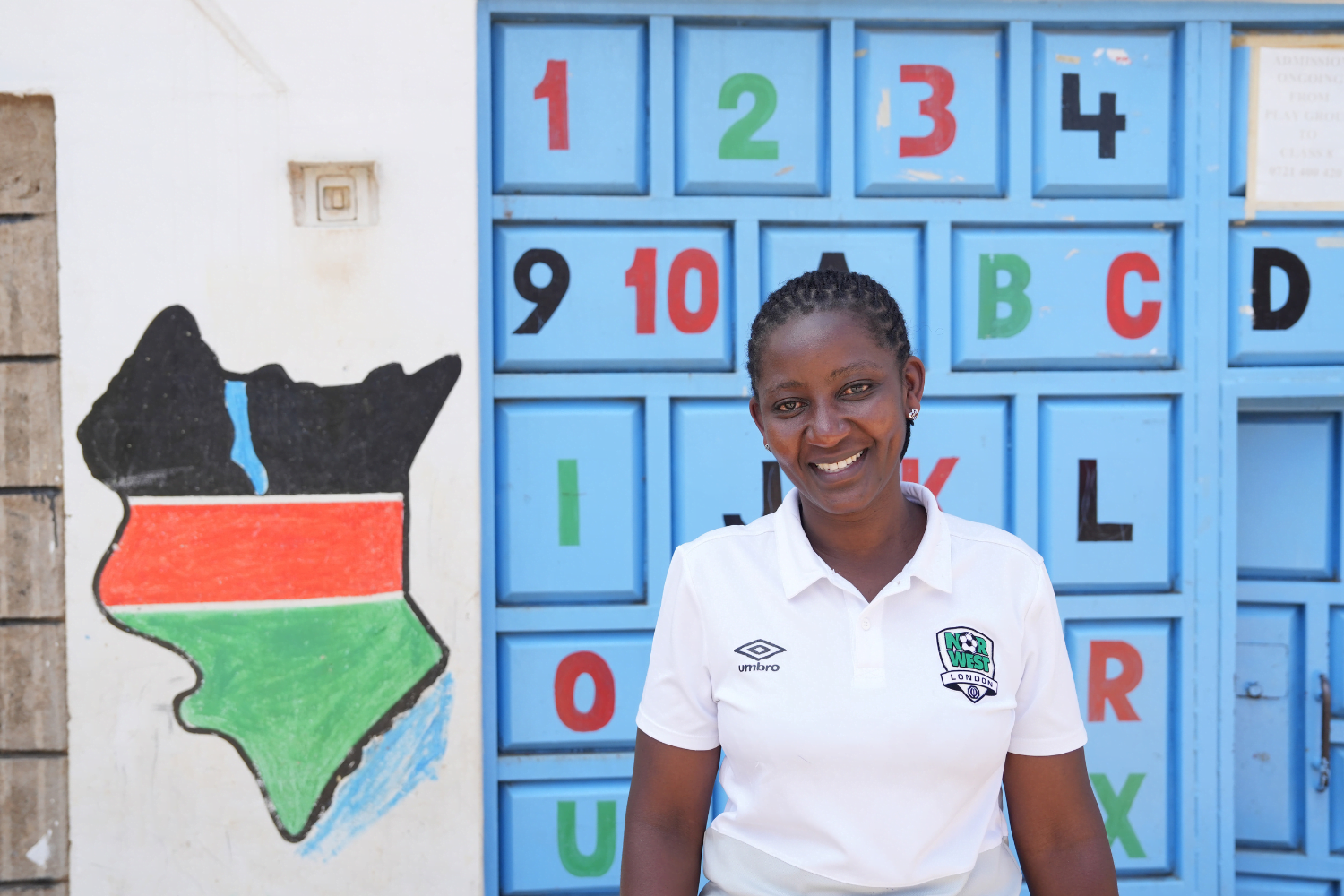
I was able to solve some of my family’s problems. I started helping my husband with feeding the children, paying school fees, and buying the children’s clothes.
I like being with children, so when I started my daycare, it helped me not only earn an income, but it also made me a happy woman. I was able to solve some of my family’s problems. I started helping my husband with feeding the children, paying school fees, and buying the children’s clothes. He was encouraging me every day not to give up.
Being an entrepreneur is very difficult for a woman. A woman has a lot of childcare and other responsibilities at home. For a man, it’s very easy. When he wakes up, he just leaves the house. Women must do the housework and then prepare to go to work.

If it weren’t for my passion, I would have given up, but I didn’t give up.
At first, there were many challenges. I didn’t have capital, so I had to go to a friend and borrow money. Many women have ideas for businesses they want to start, but capital is the main problem. If the government can offer these women finance to start their businesses, then they could work.
It was also difficult to get clients. If it weren’t for my passion, I would have given up, but I didn’t give up. I used to wake up and clean my room and wait for clients. After two months, they started coming. Now I have about forty kids and many of the parents have commented that they are happy because when they go to work, they feel very comfortable to leave their children here with me. I feel honoured to have their confidence and trust.
Kidogo came and visited my daycare in 2019. They trained us in how to deal with children and their parents. This made my business stronger and my clients happier.”
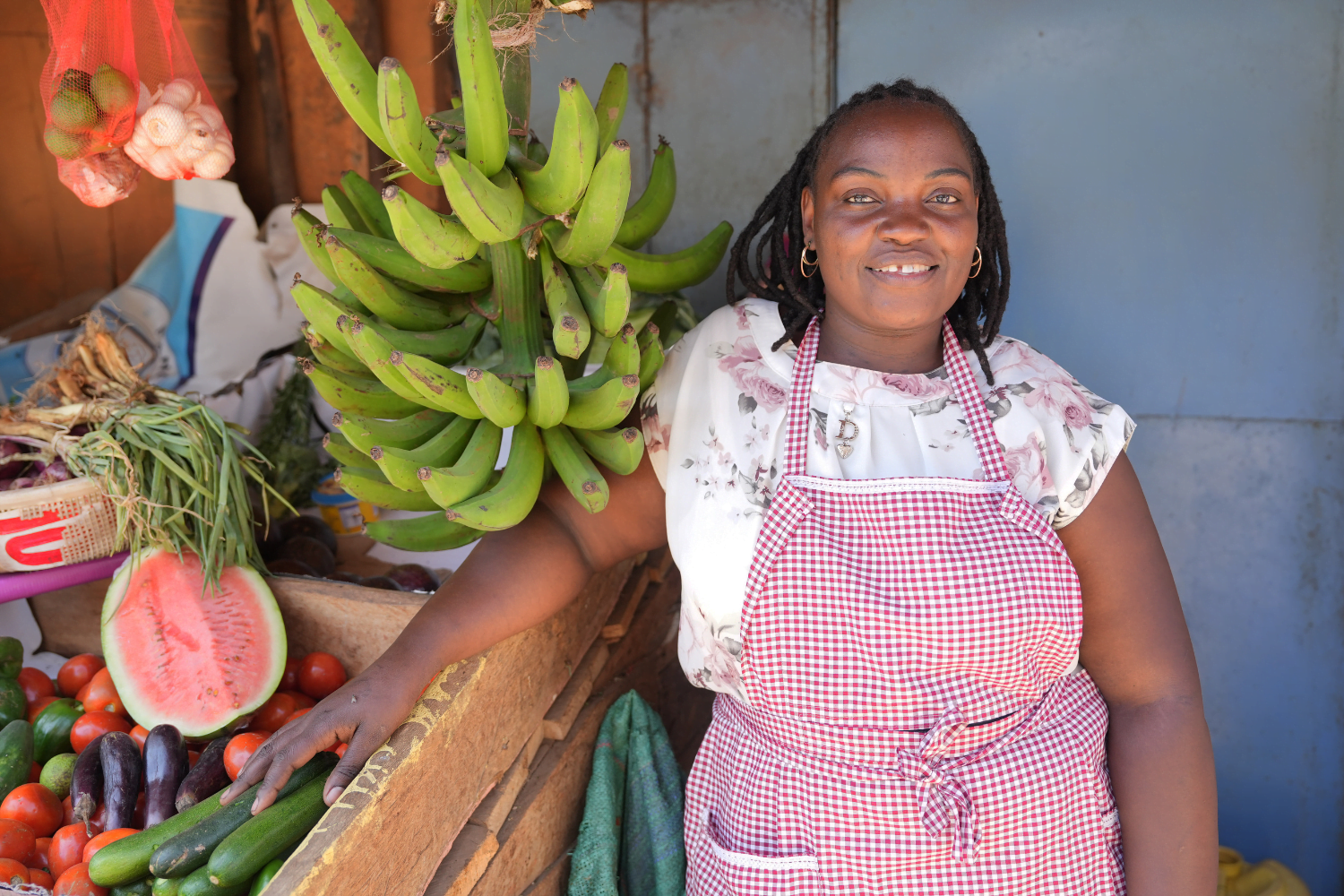
One of Mary’s clients is, Jacqueline Muthoni Njogu, who owns a produce business in Nairobi’s Giturai market. Accessing childcare through Mary’s centre has supported her to focus on her work and boost her business.
“I’m a business lady working in Giturai market. It’s best to spend the whole day at the market so that you can get a lot of costumers. The more customers you get, the more you sell and the more you profit.
To do this, I have to wake up very early in the morning. I have a small kid, so I have to wake him up as well so that I can bring him to a daycare centre or bring him with me to work, which is a very unhealthy environment for a child.
For a while, I was taking him to a daycare centre where he was mistreated. I was so stressed because the caregiver there did not have enough time for my kid. I would drop him off with food, but when I came to pick him up, I would find that it hadn’t been fed to him. When I asked why, I was told it was because he was crying. I didn’t know what to do.
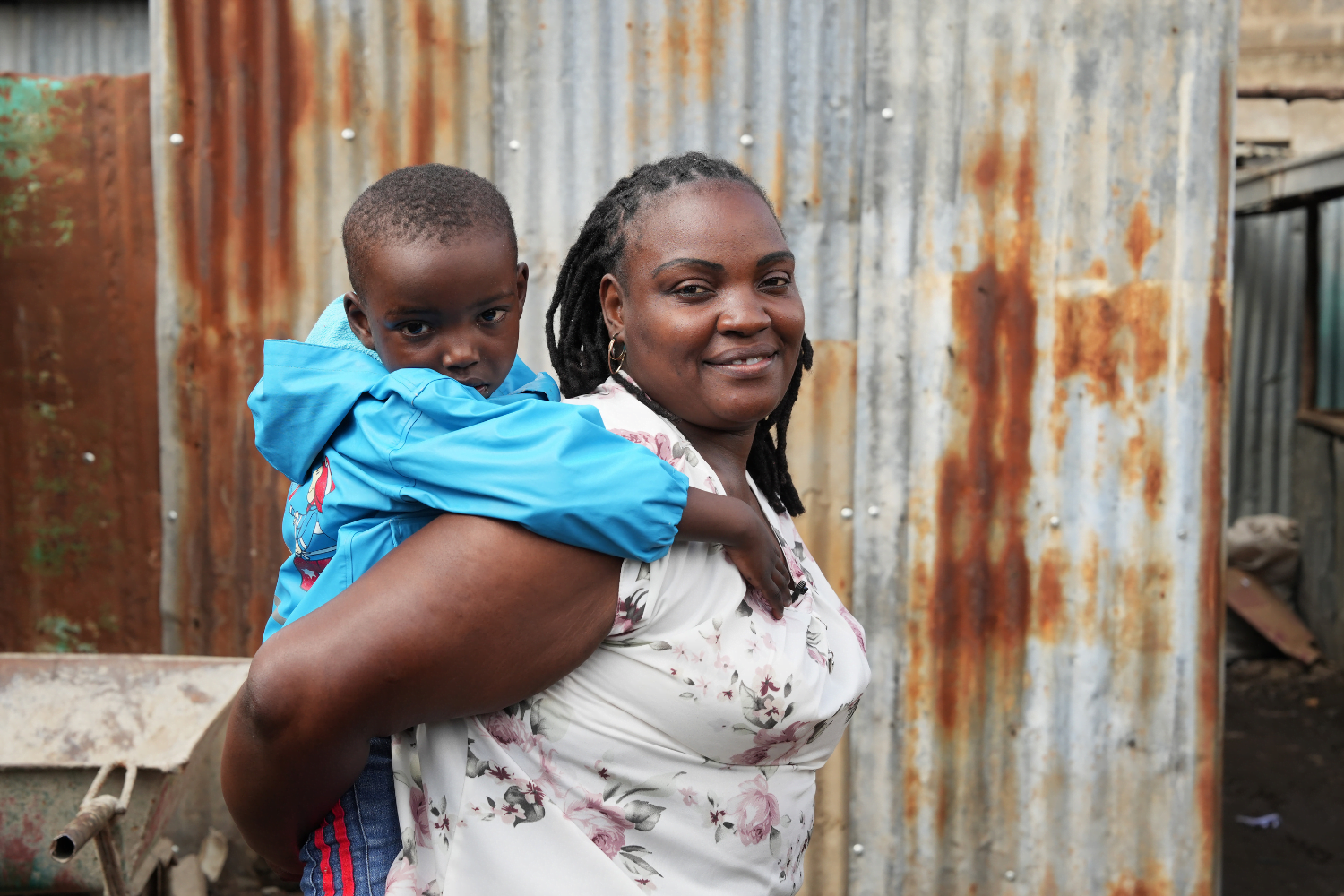
Since I brought my kid here, I have seen a lot of positive changes in my business. Before, I was working very few hours, but now I can work the whole day because I know my kid is safe.
Fortunately, a friend of mine directed me to Mary’s daycare. I was very happy with the results from day one. My son was fed, changed, and he had even learned a song.
Since I brought my kid here, I have seen a lot of positive changes in my business. Before, I was working very few hours, but now I can work the whole day because I know my kid is safe. Working more hours means I’m able to support my family better. I’m very proud of myself. Mary’s childcare centre has helped me and my business very much.
As women, we are expected to multitask, but this is difficult. We need to make money and we need to take care of our kids. It is a balancing act.
I urge the government or any well-wishers to support access to affordable, high-quality childcare, so that women can work without worry.”
Our partners
Our advocacy project on unequal unpaid care work is supported by the Ares Charitable Foundation and delivered with CARE International UK.
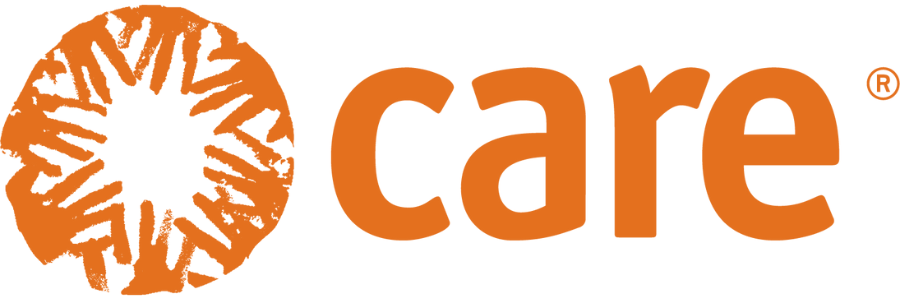
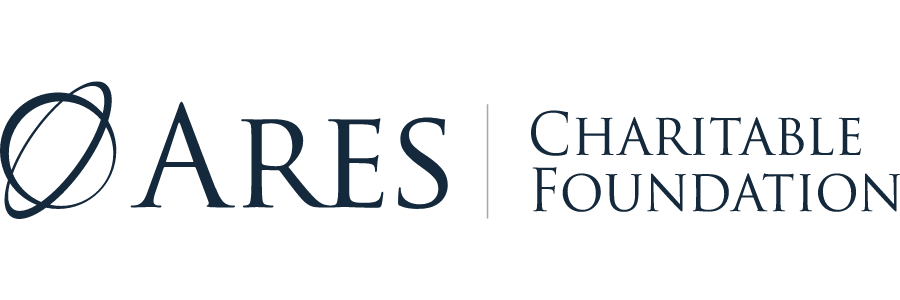
Building caring economies as a pathway to economic and gender justice
Together with CARE International UK, and with funding from Ares Charitable Foundation, we’ve published crucial insights on unpaid care work, its impact on economic and gender justice, and what must be done to build caring economies.

Read more about unpaid care work...
-
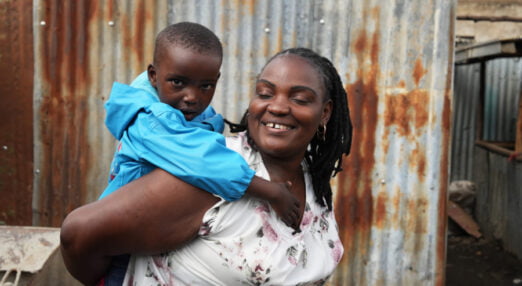
Unequal Unpaid Care Work
We've worked with CARE International UK to support women entrepreneurs by shaping policy on unpaid care work.
Read more
-
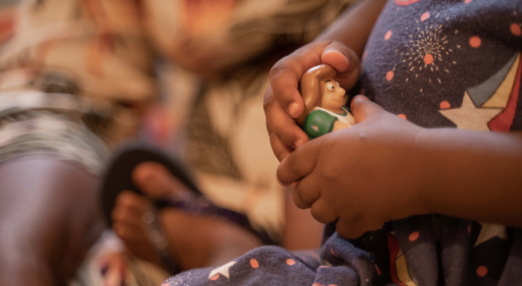
Tackling unpaid care work for women’s economic justice
We're working with CARE International UK to support women entrepreneurs by shaping policy on unpaid care work.
Read more
-
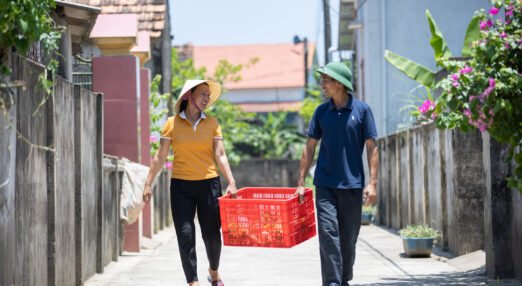
Global prosperity requires equal division of unpaid care work
Unequal division of unpaid care work is a key barrier to women’s economic justice, writes our founder Cherie Blair CBE KC on the UN's inaugural International Day of Care and Support
Read more
